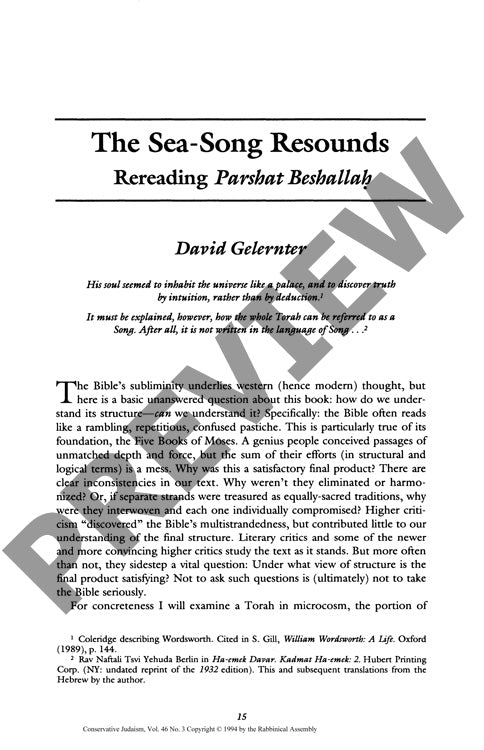The Sea Song Resounds Rereading Parshat
Couldn't load pickup availability
Ancient biblical texts operate through sophisticated networks of echoing imagery and themes rather than linear storytelling - a discovery that transforms how we read Parshat Beshallah (Exodus 13:17-17:16). Through "resonance criticism," this research reveals how seemingly disconnected narratives within Beshallah - from the Red Sea crossing accounts to the battle with Amalek - are actually unified through carefully crafted resonant relationships that amplify and reinterpret motifs from the Song of the Sea. Close textual analysis demonstrates that the biblical text functions as its own commentary, prefiguring later midrashic interpretation through overlapping themes and linguistic parallels. The research identifies two distinct organizational modes: "consequence method" (linear, goal-directed reasoning) and "resonance method" (associative connections based on shared elements). Biblical literature emerges as a crystallized form of resonant thinking that diverges from modern logical structures. These findings suggest that apparent structural inconsistencies actually reflect an ancient compositional method prioritizing thematic resonance over chronological sequence, positioning the Bible as proto-midrash. This fresh perspective on biblical literary architecture indicates that truly understanding scripture requires recognizing its resonant rather than purely logical organizational principles.

More Information
-
Physical Description
-
Publication Information
Published
ISBN
-
Publication Credits
David Gelernter

